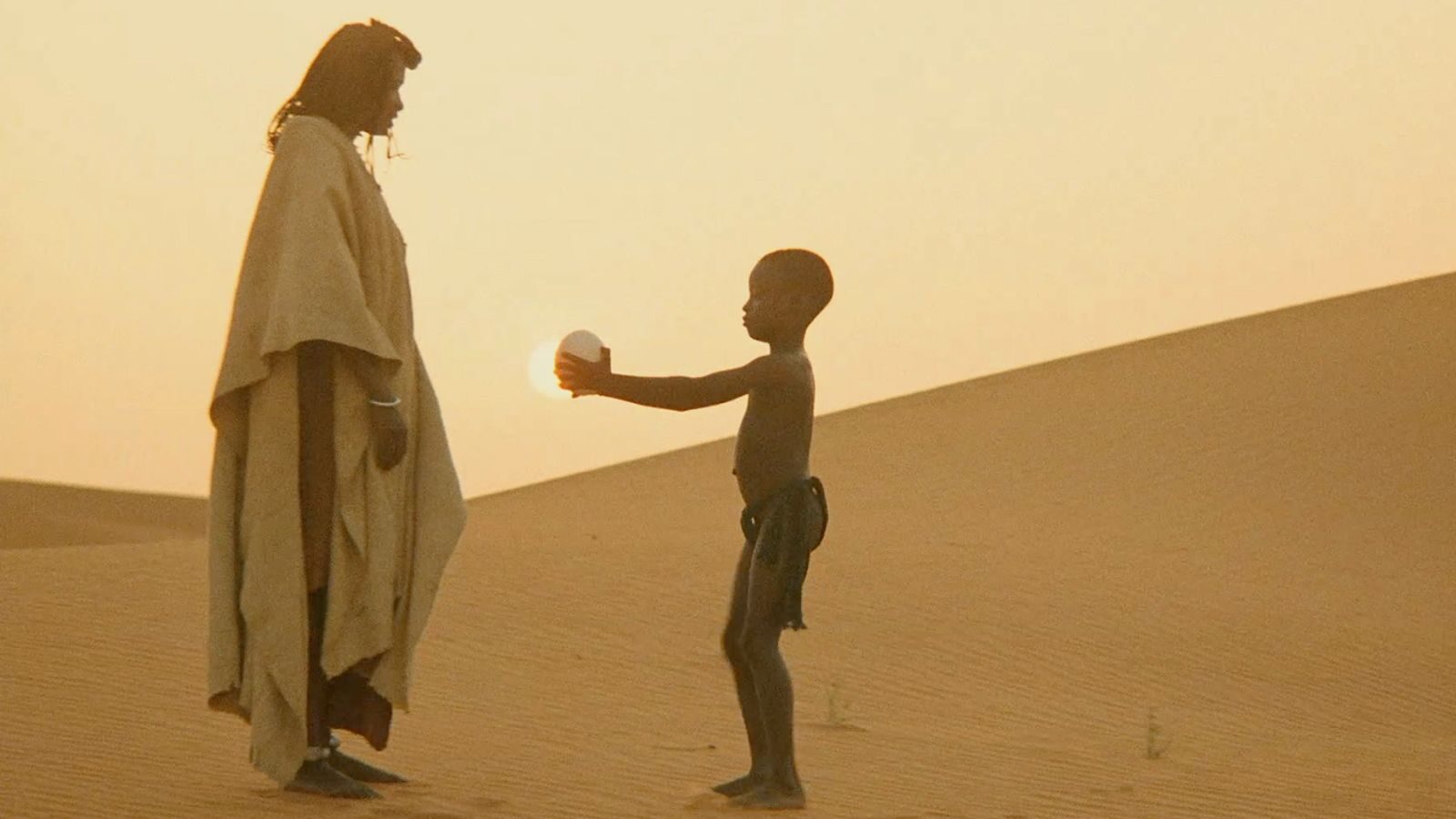Celebrated Malian filmmaker Souleyman Cissé crafted Yeelen (which means ‘brightness’) as an explicit antidote to the “ethnographic” lens through which Western directors often told Africa-set stories. That intention is certainly felt, because Yeelen doesn’t trouble itself to translate its folklore-drawn premise for audiences unfamiliar with 13th-century Malian myths. Rejecting Western storytelling conventions, it instead uses those of the culture it depicts — a looping approach to time and matter-of-fact magical realism — to present the tale of Nianankoro (Issiaka Kane), a supernaturally gifted young man whose sorcerer father (Niamanto Sanogo) plots to kill him because of the threats he poses to the elder man's power.
A basic primer to the customs central to Yeelen is provided in the opening titles, but knowledge of the culture it communicates through isn’t a prerequisite to watching and enjoying the film because its epic conflicts — both Oedipal (father versus son) and religious (flesh versus spirit) — and otherworldly sensibilities make it both instinctively familiar and mesmerizing. A deserved winner of the Cannes Jury Prize, though the fact that it was the first African film to win one of the festival's awards — 40 years into its existence — makes this an unjustly belated milestone.






